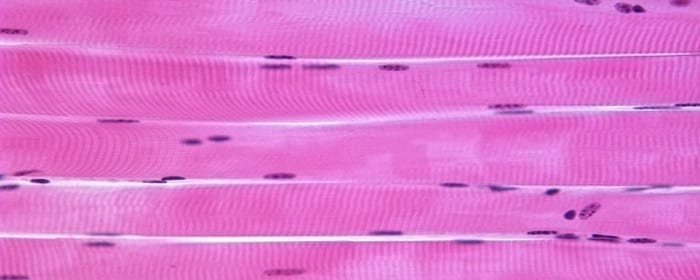Muscle health and strength is an important determinant of a person’s ability to function in daily life. One of the major determinants of healthy aging is how well people retain their muscle mass. The more that skeletal muscle declines, the more likely someone would not be able to care for themselves independently. Injury to muscles whether through trauma, burns, or toxins can greatly interfere with a person’s ability to perform activities of daily living. While muscle cells have a limited ability to regenerate themselves, quite often, patients never regain their former strength and level of function after serious injury.
Stem cells would seem to be ideally suited to help in this regard. Since stem cells have the potential to become muscle cells, one could imagine infusing stem cells into an area of muscle damage or injury to restore overall muscle function. While this makes sense intuitively, it may not be the case. Stem cells, for example, form new muscle cells, but they do not form cells that participate in muscle function. And yet, stem cells are able to help muscles regrow into functional skeletal muscles.
How could stem cells promote skeletal muscle regeneration without becoming functional skeletal muscle cells? The answer, as it turns out, is that stem cells produce molecules that strongly promote muscle regeneration and muscle function.
Stem cells release these molecules in tiny packets called exosomes. Exosomes are tiny spheres that “bubble out” of stem cells, in a manner of speaking. Exosomes have a cell membrane, like cells themselves, but are much smaller, and they do not have the ability to reproduce. Instead, exosomes are highly packed with proteins, DNA, messenger RNA, micro RNA, cytokines, and other factors.
Nakamura and co-researchers showed exosomes can help regenerate muscle. These researchers showed that by injecting exosomes harvested from stem cells (without any of the stem cells themselves), they could increase muscle growth and blood vessel growth. In short, these molecules accelerate the rate at which muscles regenerate.
While more research is needed, this work suggests that exosomes retrieved from mesenchymal stem cells could be used to help regrow functional muscle in patients with various forms of muscle injury.
Reference: Nakamura et al. (2015). Mesenchymal-stem-cell-derived exosomes accelerate skeletal muscle regeneration. FEBS Letters. 2015 May 8;589(11):1257-65.


 St. Petersburg, Florida
St. Petersburg, Florida
